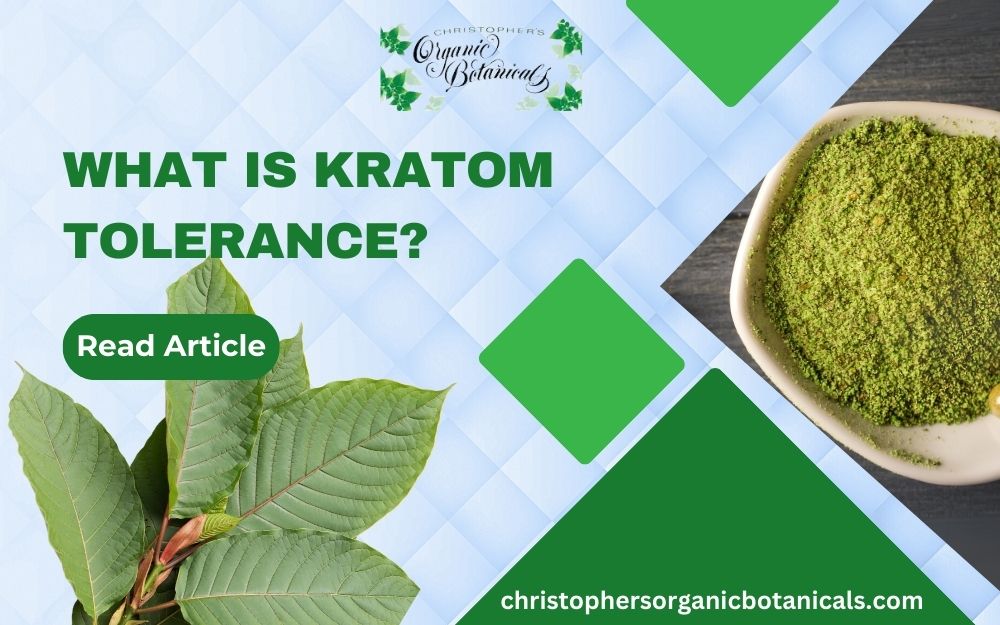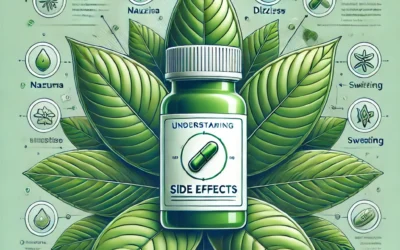What Is Kratom Tolerance and Should You Take A Break?
Taking a Kratom tolerance break is essential for maintaining the herb’s effectiveness and preventing the development of tolerance. By abstaining from Kratom for a period, usually a week or more, users can reset their body’s response to the alkaloids in Kratom, ensuring that the desired effects remain potent and beneficial. This practice not only helps in achieving better results with lower doses but also promotes overall health and well-being by giving the body a chance to recalibrate.
All four terms – addiction, withdrawal, tolerance, and dependence – are integral to the discussion surrounding substance use/abuse and behavioral health. Let’s further explain the differences among these concepts:
What is Addiction?
Definition:
- Addiction is a complex brain disorder. It is characterized by an individual’s compulsive seeking and use of a substance or engagement in behavior, even when they face harmful consequences or withdrawal.
- This condition is linked with changes in the areas of the brain that are associated with judgment, decision making, learning and memory, and behavior control.
Nature:
- Addiction is multifaceted, encompassing both psychological and physical dimensions.
- Those who suffer from addiction might find themselves continuously pursuing the addictive substance or behavior, regardless of the negative repercussions it might bring to their health, social life, or even legal standing.
Symptoms & Indicators:
- Cravings: An intense and sometimes uncontrollable desire or urge for the addictive substance.
- Loss of Control: Inability to limit the intake of the substance or stop the behavior.
- Continued Consumption Despite Harm: Persistently using the substance or engaging in the behavior even when it’s evident that it’s causing physical harm, exacerbating mental health conditions, or leading to personal and social problems.
Treatment:
- Behavioral Counseling: Therapy sessions can help patients recognize the root causes of their addiction, develop healthier coping mechanisms, and rebuild broken relationships.
- Medication: Depending on the addiction, medications can be beneficial. For instance, opioid addiction can be treated with buprenorphine or methadone.
- Mental Health Services: Many individuals with addictions also suffer from co-occurring mental health disorders, such as depression or anxiety. Addressing these is crucial for a holistic recovery approach.
- Long-term Follow-up: To prevent relapse, continuous monitoring and support are essential. This can include regular check-ins with healthcare providers, support group meetings, and maintaining a support system with friends and family.
What is Tolerance?
Definition:
- Tolerance refers to the body’s adaptation to a substance, which results in a reduced effect of the substance over time. As a consequence, to achieve the original effect, an individual might need to consume more of the substance than they did initially. Kratom dosage is an intergal part of kratom tolernace. Ingesting more kratom generally leads to an increased tolerance.
Nature:
- Predominantly physical. As an individual continues to consume a particular substance, the body undergoes physiological changes to diminish the substance’s effects, leading to the need for increasing amounts to get the same results. It’s a protective mechanism of the body to maintain homeostasis.
Symptoms & Indicators:
- Increased Consumption: The primary symptom of tolerance is the need to consume more of the substance to achieve the same effects that were once achieved with lesser quantities.
- Reduced Effect: Even when using the same amount of the substance as before, the effects feel weaker or don’t last as long.
Implication:
- As tolerance develops, it can lead to higher consumption levels of the substance. This increased intake can speed up the development of dependence, where the body relies on the substance to function normally.
- Additionally, with substances like drugs or alcohol, increased consumption elevates the risks associated with overdose, toxicity, and other adverse health effects. This is especially concerning with substances where the threshold between effective or pleasurable doses and harmful or lethal doses is narrow.
What is Dependence?
Definition:
- Dependence describes an individual’s reliance on a substance to function or feel normal. This reliance can manifest physically, psychologically, or both. Without the substance, the person might experience uncomfortable or even severe withdrawal symptoms.
Nature:
- Physical Dependence: This refers to the body’s physiological adaptation to a substance. Over time and with regular use, the body comes to expect the presence of the substance. When it’s absent, withdrawal symptoms emerge.
- Psychological Dependence: This relates more to the emotional and mental aspects of substance use. An individual might believe they need the substance to cope with stress, function in social situations, or simply to feel good. It’s more about the perceived need rather than a physiological requirement.
Symptoms & Indicators of Withdrawl
Physical Dependence:
- Withdrawal Symptoms: These can vary based on the substance but might include nausea, shaking, headaches, irritability, and more severe symptoms like seizures. Think about Alcohol Detox and quitting alcohol cold turkey.
- Tolerance: Often, physical dependence goes hand in hand with increased tolerance.
Psychological Dependence:
- Cravings: Intense desires to use the substance even if there’s no physical withdrawal.
- Anxiety or depression when the substance is unavailable.
- Using the substance as the primary way to cope with negative emotions or stressors.
Treatment:
For individuals physically dependent on a substance, treatment often begins with detoxification. This is a medically supervised process where the substance is gradually cleared from the body.
- Detoxification: Depending on the substance and severity of dependence, medications might be used to manage and alleviate withdrawal symptoms.
- Post-detox, comprehensive treatment strategies can include behavioral therapy, counseling, and support groups to address both physical and psychological aspects of dependence.
- It’s crucial to remember that dependence, especially when chronic or severe, should be treated under medical supervision to ensure safety and increase the likelihood of long-term recovery.
In a context where these terms often overlap:
- An individual can develop a tolerance to a substance, meaning they need to consume more of it to achieve the same effect.
- Continued use can lead to dependence, where they might experience withdrawal symptoms without the substance.
- Over time, this can evolve into an addiction, where the individual compulsively seeks and uses the substance despite negative consequences.
Examples:
- Someone can be dependent on insulin if they have diabetes, but they aren’t addicted to it. Their body needs it to function properly, and they might experience adverse effects without it, but they don’t compulsively seek it out despite harmful consequences.
- Conversely, someone might be addicted to gambling. They compulsively gamble despite the negative repercussions on their personal and financial life. This is a behavioral addiction without a substance dependence component.
The Distinction Between Tolerance, Dependence, and Addiction
Understanding the distinction between tolerance, dependence, and addiction is crucial as these concepts often intersect but can also exist independently. While they are related, they represent different aspects of a person’s relationship with a substance or medication.
Tolerance: refers to the body’s adaptation to a substance over time, resulting in the need for higher doses to achieve the same effect. In the example of a patient on long-term pain management, they may develop tolerance to a medication, requiring an increased dosage to continue experiencing pain relief. This does not necessarily indicate addiction but rather a physiological response to the medication.
Dependence: on the other hand, refers to the body’s reliance on a substance to function normally. When someone becomes dependent on a medication, their body has adapted to its presence and stopping or reducing the dosage can lead to withdrawal symptoms. In the case of the patient on long-term pain management, they may experience withdrawal symptoms if the medication is abruptly discontinued, indicating dependence.
Addiction: however, involves a complex psychological and behavioral component. It is characterized by compulsive drug-seeking behavior, loss of control over drug use, and continued use despite negative consequences. Addiction is often accompanied by tolerance and dependence, but it is not solely defined by these factors. In the example given, the patient may not necessarily be addicted to the medication even if they have developed tolerance and dependence. Addiction involves a psychological craving for the substance and an inability to control its use, which may not be present in this scenario.
Withdrawal: Withdrawal refers to the physical and mental symptoms experienced when someone stops or reduces their intake of a substance they are dependent on, like drugs or alcohol. These symptoms vary from mild discomfort to severe health complications, depending on the substance, duration of use, and the individual’s health. Withdrawal happens because the body must adapt to operating without the substance it has become reliant on.
Conclusion
It is important to recognize that while tolerance and dependence can be managed under medical supervision, addiction requires specialized treatment and support. Understanding the differences between these concepts can help healthcare professionals make informed decisions about patient care and ensure appropriate interventions are provided when necessary.






0 Comments